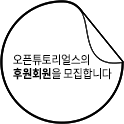Links are found in nearly all web pages. Links allow users to click their way from page to page.
HTML Links - Hyperlinks
HTML links are hyperlinks.
You can click on a link and jump to another document.
When you move the mouse over a link, the mouse arrow will turn into a little hand.
Note: A link does not have to be text. It can be an image or any other HTML element.
HTML Links - Syntax
In HTML, links are defined with the <a> tag:
<a href="url">link text</a>
Example
<a href="https://www.w3schools.com/html/">Visit our HTML tutorial</a>
The href attribute specifies the destination address (https://www.w3schools.com/html/) of the link.
The link text is the visible part (Visit our HTML tutorial).
Clicking on the link text will send you to the specified address.
Note: Without a forward slash on subfolder addresses, you might generate two requests to the server. Many servers will automatically add a forward slash to the address, and then create a new request.
Local Links
The example above used an absolute URL (A full web address).
A local link (link to the same web site) is specified with a relative URL (without http://www....).
Example
<a href="html_images.asp">HTML Images</a>
HTML Link Colors
By default, a link will appear like this (in all browsers):
- An unvisited link is underlined and blue
- A visited link is underlined and purple
- An active link is underlined and red
You can change the default colors, by using styles:
Example
<style>
a:link {color:green; background-color:transparent; text-decoration:none}
a:visited {color:pink; background-color:transparent; text-decoration:none}
a:hover {color:red; background-color:transparent; text-decoration:underline}
a:active {color:yellow; background-color:transparent; text-decoration:underline}
</style>
HTML Links - The target Attribute
The target attribute specifies where to open the linked document.
The target attribute can have one of the following values:
- _blank - Opens the linked document in a new window or tab
- _self - Opens the linked document in the same window/tab as it was clicked (this is default)
- _parent - Opens the linked document in the parent frame
- _top - Opens the linked document in the full body of the window
- framename - Opens the linked document in a named frame
This example will open the linked document in a new browser window/tab:
Example
<a href="https://www.w3schools.com/" target="_blank">Visit W3Schools!</a>
Tip: If your webpage is locked in a frame, you can use target="_top" to break out of the frame:
Example
<a href="https://www.w3schools.com/html/" target="_top">HTML5 tutorial!</a>
HTML Links - Image as Link
It is common to use images as links:
Example
<a href="default.asp">
<img src="smiley.gif" alt="HTML tutorial" style="width:42px;height:42px;border:0;">
</a>
Note: border:0; is added to prevent IE9 (and earlier) from displaying a border around the image (when the image is a link).
HTML Links - Create a Bookmark
HTML bookmarks are used to allow readers to jump to specific parts of a Web page.
Bookmarks can be useful if your webpage is very long.
To make a bookmark, you must first create the bookmark, and then add a link to it.
When the link is clicked, the page will scroll to the location with the bookmark.
Example
First, create a bookmark with the id attribute:
<h2 id="tips">Useful Tips Section</h2>
Then, add a link to the bookmark ("Useful Tips Section"), from within the same page:
<a href="#tips">Visit the Useful Tips Section</a>
Or, add a link to the bookmark ("Useful Tips Section"), from another page:
Example
<a href="html_tips.html#tips">Visit the Useful Tips Section</a>
External Paths
External pages can be referenced with a full URL or with a path relative to the current web page.
This example uses a full URL to link to a web page:
Example
<a href="https://www.w3schools.com/html/default.asp">HTML tutorial</a>
example links to a page located in the html folder on the current web site:
Example
<a href="/html/default.asp">HTML tutorial</a>
This example links to a page located in the same folder as the current page:
Example
<a href="default.asp">HTML tutorial</a>
You can read more about file paths in the chapter HTML File Paths.
Chapter Summary
- Use the <a> element to define a link
- Use the href attribute to define the link address
- Use the target attribute to define where to open the linked document
- Use the <img> element (inside <a>) to use an image as a link
- Use the id attribute (id="value") to define bookmarks in a page
- Use the href attribute (href="#value") to link to the bookmark


